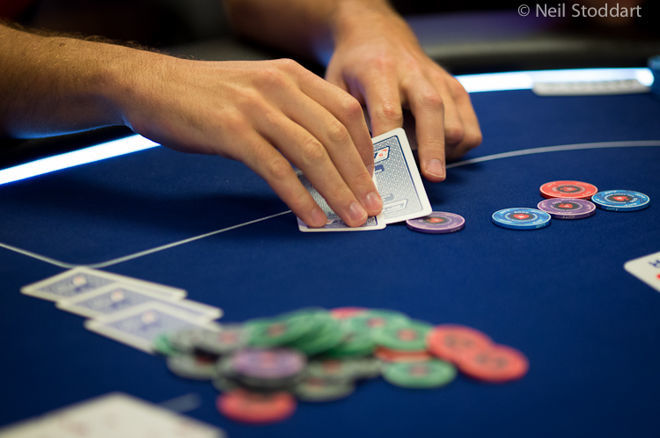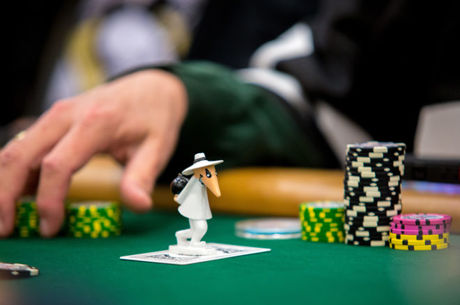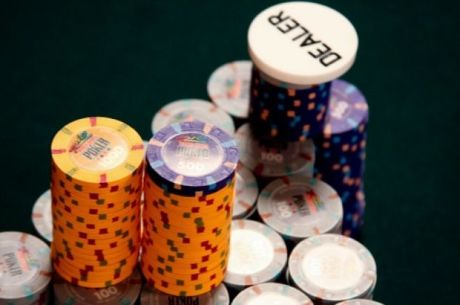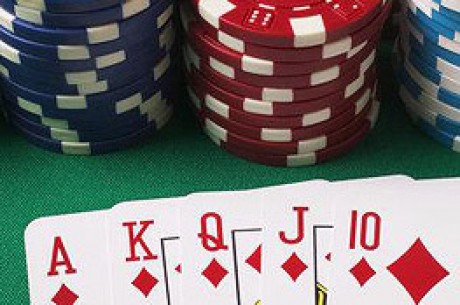Stud Poker Strategy: Check Raising, part two.

In our prior column on check-raising we covered what a check-raise was and three basic situations when it could be used: getting more money into the pot, narrowing the field, and bluffing. Let's look at the decision a bit more strategically here so you can pick your spots in actual games.
For the most part, you don't want to check-raise opponents who don't really understand the power of the move. Poor players make bad targets because they often don't bet when you expect them to - and they often won't fold when you expect them to either. You might engineer the cleverest of check-raise ploys only to have it foiled because all of your opponents check. What a waste.
Better to save them for opponents who are aware of your action and who are at least good enough to be at least moderately predictable. There are two exceptions to this rule - times when you can check-raise a complete idiot. They occur on the River.
If you have two pair on Sixth Street and are certain that your opponent has a Flush or a Straight you can usually get away with a check raise if you are high on board and you hit a Full House. Here's how it works.
Sixth Street:
You (9♣3♠)9♦ 3♥ 6♠ K♥
Him (Xx) J♣ 7♣ 4♠ 8♣
Sixth Street Betting: You bet and you are raised by Him. You call.
River
You (9♣ 3♠)9♦ 3♣ 6♠ K♥ (3♦)
Him (Xx) J♣ 7♣ 4♠ 8♣ (x)
River Betting: You check. He bets his flush. You raise with your Full House. He will surely call. You win two bets on the River instead of one.
You can imagine similar situations where your opponent clearly showed strength but you clearly surpassed him on the River. You can check-raise in all of them even if your opponent really doesn't have a clue. But for the most part, you want thoughtful opponents who are predictable before you execute a check raise.
Similarly, you must have the position to make your check-raise a double bet for the opponents you want to knock out. This is because few players will fold for a single raise when they have called a single bet already in a betting round.
If, for example, you check raise a bettor who is right in front of you, then the other players in the game have already called his bet before your raise - making it likely that they will call your raise as well. This will have the opposite effect on the other players that you wish, making it more likely that they will continue to draw to the River since the pot has just been artificially inflated in value - making their calls more correct. Here's an example of that:
You (A♦ 2♦) 6♣ A♣
Sam (Xx) 9♦ K♦
Hoy (Xx) 5♠ K♠
Mot (Xx) 6♥ 7♣
Let's say the action goes, You, Sam, Hoy and then Mot. And Sam is the very aggressive player that you're pretty sure will bet. Hoy and Mot are passive loose players. If that's the case then you don't want to try a check raise with your pair of Aces. You just want to bet, hope that Sam raises you and knocks out the other players. If you did check, with the intention of check raising, and Sam bet, then Hoy and Moty would be likely to call Sam's initial bet and your raise. But if Sam was to your right, your check-raise would make sense - since after Hoy and Moy checked, Sam would bet and you could raise him, making it two bets to Hoy and Moy, making it more likely that they would fold.
Now imagine the same scenario. But instead of making a pair of Aces on Fourth Street, you made Trip Aces.
You (A♦ 2♦)6♣ A♣
Sam (Xx) 9♦ K♦
Hoy (Xx) 5♠ K♠
Mot (Xx) 6♥ 7♣
Now you wouldn't want to check-raise to knock people out. Your hand is too strong for that. You'd want to check-raise to get more money in the pot - and are happy to have Hoy and Mot in the hand. Here it makes sense to try for the check-raise if Sam is to your left, but not to your right. If Sam bets after you check, Hoy and Mot are likely to call. When you raise everyone else is likely to call, also making it more likely that they'll stay in until the River because of the large pot. While it's true that they can draw a straight or a flush to beat you, it's equally true that you have just as good a chance of getting a full house.
If Sam the raiser is to your right, however, there's no reason to check-raise, since your raise will likely knock out the other players and you'll be playing heads up. Though you wouldn't mind this - you're better off with the four-way action with your Trips and Full House draw then you are heads up.
Similar situations come up all the time in Stud. You must exercise restraint with the check-raise - not doing it just because you can. Used selectively, the check-raise is an excellent way of increasing the amount of money that you win in the long run, by either getting more money from other players, by limiting the number of players playing against you, or by doing both.
The next column will be on what to do when you arrive at a game with a "no check-raising" rule.








